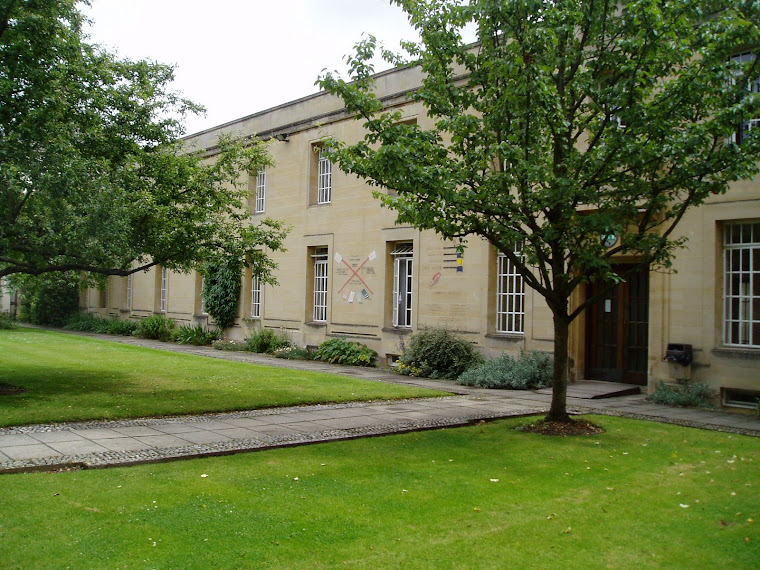Wednesday, 22 April 2020
Tuesday, 14 April 2020
What constitutes a church? Some questions and theological reflections
When I was looking into Peniel Church and Michael Reid Ministries in the 1990s, I often asked myself can a business man or landed gentleman or lady with sufficient funds build, maintain and establish a genuine church under his or her authority, leadership and direction? Certain Church of England livings were in the gift of the lord of the manor, lady bountiful, Sir Somebody of local importance or Ben E. Factor. C.H. Spurgeon with his brother bought land and built churches, which were wisely staffed with students from the College, as at Hornchurch in North Street and Leather Lane. Wesley and Whitfield founded churches when folk were converted under their ministries and evangelistic enterprise. A number of Brethren chapels were established by elders and others who had the wealth, time and commitment to setting up their Gospel Halls, without clergy and denominational interference. Sir John Laing funded various church building projects and financed London Bible College, which produced pastors and preachers for Christian assemblies and fellowships.
Some churches had church planting projects and schemes involving missionary activity and evangelistic meetings in tents, halls and homes, which grew to fully fledged churches. Some house groups and home based fellowships became local fellowships, independent and non-denominational centres of worship.
Recently I watched a YouTube video featuring Kanye West who had formed a sort of church fellowship involving his friends, colleagues and road show personnel, and they eventually employed a pastor. When does such a group become a church or a fellowship?
It seems to me that anyone in Protestantism can form a church if they desire and have the means to do so. But what makes it a church rather than a meeting or a group of believers gathering together for casual fellowship, an extended prayer group? Is a home group or Christian Union, workplace Bible study and prayer group a church? Some may operate in way that has arguably all the features of a church: prayer, the ministry of the Word, evangelism, eucharistic services, a doctrinal statement and basis of faith, creeds, discipline of membership with guidelines concerning requirements and capable, theologically competent leadership. They may run various programmes and events which draw on resources and the expertise of established churches and what has been called para church groups. Some have talked about "the church of the Hornchurch Passion Play", when those involved meet and have fellowship around this common purpose, this sacred project.
I come back to the question, what makes, what constitutes an authentic church? What are the minimum requirements or essential requirements? Some Roman Catholics would argue that the question has already been answered in the Holy Catholic Church and there is no other true church. So there can be no church outside of the true church, though some would concede that the Othodox Church, both Russian and Eastern, is a church, schismatic one but not heretical like the Protestant and other non denominational, independent churches. The idea of an individual starting a church is anathema to some Catholics and the true church should be under the direct authority of the Pope.
Could I start a church in my home or in the back garden under a specially constructed marquee?
Who really has the authority to establish a church, assembly of God's flock or ecclesia?
Have you any views on this subject? I would welcome your comments.
Some churches had church planting projects and schemes involving missionary activity and evangelistic meetings in tents, halls and homes, which grew to fully fledged churches. Some house groups and home based fellowships became local fellowships, independent and non-denominational centres of worship.
Recently I watched a YouTube video featuring Kanye West who had formed a sort of church fellowship involving his friends, colleagues and road show personnel, and they eventually employed a pastor. When does such a group become a church or a fellowship?
It seems to me that anyone in Protestantism can form a church if they desire and have the means to do so. But what makes it a church rather than a meeting or a group of believers gathering together for casual fellowship, an extended prayer group? Is a home group or Christian Union, workplace Bible study and prayer group a church? Some may operate in way that has arguably all the features of a church: prayer, the ministry of the Word, evangelism, eucharistic services, a doctrinal statement and basis of faith, creeds, discipline of membership with guidelines concerning requirements and capable, theologically competent leadership. They may run various programmes and events which draw on resources and the expertise of established churches and what has been called para church groups. Some have talked about "the church of the Hornchurch Passion Play", when those involved meet and have fellowship around this common purpose, this sacred project.
I come back to the question, what makes, what constitutes an authentic church? What are the minimum requirements or essential requirements? Some Roman Catholics would argue that the question has already been answered in the Holy Catholic Church and there is no other true church. So there can be no church outside of the true church, though some would concede that the Othodox Church, both Russian and Eastern, is a church, schismatic one but not heretical like the Protestant and other non denominational, independent churches. The idea of an individual starting a church is anathema to some Catholics and the true church should be under the direct authority of the Pope.
Could I start a church in my home or in the back garden under a specially constructed marquee?
Who really has the authority to establish a church, assembly of God's flock or ecclesia?
Have you any views on this subject? I would welcome your comments.
Sunday, 12 April 2020
Jesus has risen. He has risen indeed.
Jesus is the resurrection and the life. He lives. He reigns. He rules.
He has not yet dealt with His enemies and the forces of darkness, but He will come again.
Jesus will return. He will be back. And perhaps sooner than you think. For in such an hour as you think not, the Son of Man comes.
He is Lord. One day everyone will acknowledge that. Every knee shall bow, even those who are unwilling and deny His existence, His deity and His Kingship. Jesus will reveal Himself as King of Kings and LORD of Lords.
The Parousia, the coming, His second coming will not be in secret, but with a shout and mighty manifestation of His glory.
He will call up and out His people, establishing His eternal Kingdom. For we Christians await a new heaven and a new earth where righteousness dwells. Jesus will usher in the perfect age.
He has not yet dealt with His enemies and the forces of darkness, but He will come again.
Jesus will return. He will be back. And perhaps sooner than you think. For in such an hour as you think not, the Son of Man comes.
He is Lord. One day everyone will acknowledge that. Every knee shall bow, even those who are unwilling and deny His existence, His deity and His Kingship. Jesus will reveal Himself as King of Kings and LORD of Lords.
The Parousia, the coming, His second coming will not be in secret, but with a shout and mighty manifestation of His glory.
He will call up and out His people, establishing His eternal Kingdom. For we Christians await a new heaven and a new earth where righteousness dwells. Jesus will usher in the perfect age.
Saturday, 11 April 2020
John Bunyan on grace and the throne of grace
By this word grace, we are to understand God's free, sovereign, good pleasure, whereby He acts in Christ towards His people. Grace and mercy therefore are terms that have their distinct significations; mercy signifies pitifulness, or a running over of infinite compassion to objects in a miserable and helpless condition. But grace signifies that God still acts in this as a free agent, nor being wrought upon by the misery of the creature, as a procuring cause; but of His own princely mind.
Were there no objects of pity among those that in the old world perished by the flood, or that in Sodom were burned with fire from heaven? Doubtless, according to our apprehension, there were many. But Noah, and he only, found grace in God's eyes; not because that of himself he was better than the rest, but God acted as a gracious prince towards him, and let him share in mercy of His own sovereign will and pleasure. But this at first was not so fully made manifest as it was afterwards. Wherefore the propitiatory was not called, as here, a throne of grace, but a mercy seat. Yet there was great glory in this term also; for by mercy seat was showed, not only that God had compassion for men, but that this was His continual resting place, whither He would at length retire, and where He would sit down and abide, whatever terrible or troublesome work for His church was on the wheel (an allusion to Jeremiah 18: 1-10) at present. For a seat is a place of rest, yea, is prepared for that end; and mercy is here called that seat, to show, as I said, that whatever work is on the wheel in the world, let it be never so dreadful and amazing, yet to God's church it shall end in mercy, for that is God's resting place. Wherefore after God had so severely threatened and punished His church under the name of a whorish woman, as you may read in the prophet Ezekiel, He says, "so will I make my fury toward thee to rest, and my jealousy shall depart from thee; and I will be quiet , and will be angry no more."
And there is more to come folks...
Were there no objects of pity among those that in the old world perished by the flood, or that in Sodom were burned with fire from heaven? Doubtless, according to our apprehension, there were many. But Noah, and he only, found grace in God's eyes; not because that of himself he was better than the rest, but God acted as a gracious prince towards him, and let him share in mercy of His own sovereign will and pleasure. But this at first was not so fully made manifest as it was afterwards. Wherefore the propitiatory was not called, as here, a throne of grace, but a mercy seat. Yet there was great glory in this term also; for by mercy seat was showed, not only that God had compassion for men, but that this was His continual resting place, whither He would at length retire, and where He would sit down and abide, whatever terrible or troublesome work for His church was on the wheel (an allusion to Jeremiah 18: 1-10) at present. For a seat is a place of rest, yea, is prepared for that end; and mercy is here called that seat, to show, as I said, that whatever work is on the wheel in the world, let it be never so dreadful and amazing, yet to God's church it shall end in mercy, for that is God's resting place. Wherefore after God had so severely threatened and punished His church under the name of a whorish woman, as you may read in the prophet Ezekiel, He says, "so will I make my fury toward thee to rest, and my jealousy shall depart from thee; and I will be quiet , and will be angry no more."
And there is more to come folks...
Tuesday, 7 April 2020
John Bunyan's word of advice to all God's people
1. Believe that as sure as you are in the way of God, you must meet with temptations.
2. The first day therefore that you enter into Christ's congregations, look for them.
3. When they do come, beg of God to carry you through them.
4. Be jealous of your own heart, that it deceive you not in your evidences for heaven, nor in your walking with God in this world.
5. Take heed of the flatteries of false brethren.
6. Keep in the life and power of truth.
7. Look at the things which are not seen.
8. Take heed of little sins.
9. Keep the promise warm upon your heart.
10. Renew your acts of faith in the blood of Christ.
11. Consider the work of your generation.
12. Count to run with the foremost therein.
Grace be with you.
2. The first day therefore that you enter into Christ's congregations, look for them.
3. When they do come, beg of God to carry you through them.
4. Be jealous of your own heart, that it deceive you not in your evidences for heaven, nor in your walking with God in this world.
5. Take heed of the flatteries of false brethren.
6. Keep in the life and power of truth.
7. Look at the things which are not seen.
8. Take heed of little sins.
9. Keep the promise warm upon your heart.
10. Renew your acts of faith in the blood of Christ.
11. Consider the work of your generation.
12. Count to run with the foremost therein.
Grace be with you.
Saturday, 4 April 2020
Positive aspects of the isolation and stay at home situation
In these troubled times there will be positive outcomes. Books will be written, music will be composed, poetry, films, videos, blogs, art and innovations will flourish. There will be inventions and breakthroughs. Christians will spend more time in prayer. Bible reading, and internet evangelism will increase. People will discover new skills. Scientific progress will be made. We will discover new and exciting ways of communication, leisure activity, and education. Some will find better ways of living and coping with trials and tribulations during the Corona virus crisis.
James 1:2-4
Count it all joy, my brethren, when various trials come upon you for you know that your faith is being tested which produces endurance. And let endurance work to its full effect to develop you completely so that you are lacking nothing.
James 1:2-4
Count it all joy, my brethren, when various trials come upon you for you know that your faith is being tested which produces endurance. And let endurance work to its full effect to develop you completely so that you are lacking nothing.
Subscribe to:
Posts (Atom)
Dedham

River Stour














































































































































